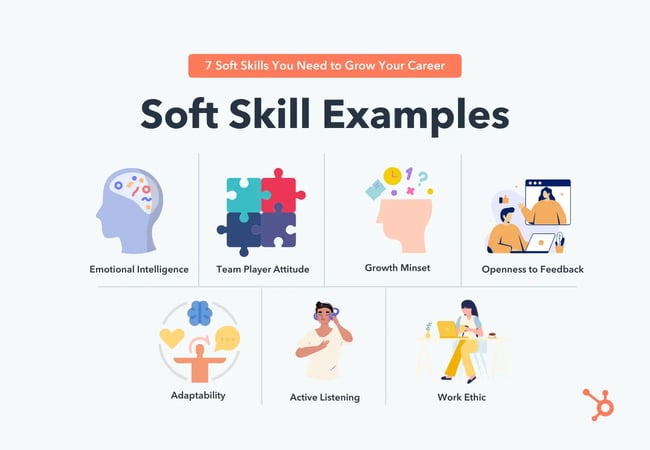Have you ever wondered what sets some individuals apart in their careers? Why do some people seem to effortlessly climb the corporate ladder while others struggle to make any progress? The answer lies in the power of soft skills.
Soft skills, often referred to as personal or interpersonal skills, are the intangible qualities that enable individuals to effectively navigate the workplace and interact with others. While technical skills and job-specific knowledge are important, it is the soft skills that truly set individuals apart and pave the way for career advancement.
Growing up, I always believed that success in my career would be solely based on my educational qualifications and technical expertise. I focused solely on acquiring technical knowledge, constantly working to increase my skill set in my chosen field. However, as I started my professional journey, I quickly realized that excelling at work required much more than just technical prowess. I discovered that building strong relationships, effective communication, and problem-solving abilities were equally important.
Strong interpersonal skills are the foundation upon which a successful career is built. The ability to connect with others, to establish rapport, and to build meaningful relationships is essential. These skills allow you to work effectively in teams, resolve conflicts, and gain the support and collaboration of your colleagues. I have personally witnessed how individuals with exceptional interpersonal skills are often viewed as natural leaders, as they can inspire and motivate those around them.
Another crucial soft skill is effective communication. The way we express ourselves and articulate our ideas can greatly impact our professional success. Clarity, conciseness, and the ability to engage others through our words are skills that can significantly enhance our professional image. Communication skills encompass not only speaking but also active listening and the ability to convey empathy. By being able to truly understand and connect with others, we can build strong relationships and enhance our reputation as effective communicators.
Problem-solving and critical thinking skills are also highly prized in the workplace. Employers value individuals who can identify problems, analyze situations, and come up with innovative solutions. Being able to think critically and make informed decisions will place you in a position of authority, as you demonstrate your ability to handle challenges and drive positive change in your organization.
Adaptability is another soft skill that is becoming increasingly important in today’s fast-paced and ever-changing business environment. The ability to quickly adjust to new circumstances, embrace change, and learn new technologies is crucial for career advancement. Employers want individuals who can seamlessly transition between different projects and adapt to different work environments. By demonstrating your adaptability, you prove that you are capable of handling uncertainties and can thrive in a variety of situations.
Time management and organizational skills are also vital in today’s busy work environment. Being able to prioritize tasks, set goals, and manage your time effectively will not only improve your productivity but also demonstrate your ability to handle multiple responsibilities. Employers value individuals who can juggle various tasks and meet deadlines, as it shows reliability, accountability, and a strong work ethic.
While building technical skills is essential for career growth, investing in building your soft skills is equally crucial. These skills complement and enhance your technical expertise, allowing you to effectively navigate the workplace and excel in your chosen field. I have personally witnessed the impact of soft skills on career progression. Individuals with strong interpersonal skills, effective communication, critical thinking abilities, adaptability, and strong time management skills tend to advance faster and are often entrusted with more significant responsibilities.
So, how can you develop your soft skills? The good news is that these skills can be learned and improved with time and practice. Seek out opportunities to enhance your communication skills, such as public speaking engagements or joining a toastmasters club. Actively participate in group projects or team-building activities to improve your ability to collaborate and build relationships. Look for challenging assignments that require critical thinking and problem-solving, which will enable you to hone these skills. Reading books and attending workshops on time management and organizational skills can also help you enhance these crucial abilities.
Ultimately, building soft skills is an ongoing process that requires self-awareness, dedication, and continuous improvement. It’s about understanding your strengths and weaknesses and actively working towards developing the areas that need improvement. By investing in your soft skills, you will not only boost your career advancement opportunities but also become a well-rounded professional capable of making a lasting impact.
In conclusion, the world of work is constantly evolving, and technical skills alone are no longer sufficient for career success. Building and nurturing soft skills such as strong interpersonal skills, effective communication, critical thinking, adaptability, and time management abilities are crucial for career advancement. By focusing on developing these skills, you will improve your professional standing, enhance your relationships at work, and position yourself for long-term success. So, invest in yourself and start building your soft skills today!
